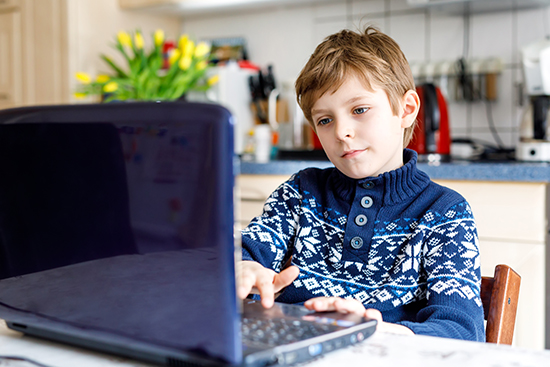Thinking back to when many of us were adolescents, the news of school closing would have been music to most of our ears. Not having to go into school and sit behind a laptop all day doesn’t sound all that bad. However, today’s youth has recently been convinced otherwise. Since the closing of the schools in December, the transition to online learning has been a challenge to teachers and students alike. Although the previous school closure in March was a necessary measure, the long-term negative consequences for the younger generation are becoming clearer by the day. According to Het Parool newspaper, an astounding 61% of teachers worry about the effect it will have on children if schools are unable to open their doors before the end of February.
The concerns that teachers have indicated are very far-reaching. Mental health, lack of social interaction, stagnation in social development and little to no physical exercise all contribute to an overall unhealthier lifestyle for the younger generation. For adolescents, who are supposed to be in the peak of their physical and mental development, these hindrances will prove to be more detrimental to their personal growth than one might initially expect.
Teachers are especially concerned about students who are already struggling with academic performance or experience social disconnect with others in their age group. Now that they are even less exposed to situations requiring direct social interaction, or even more easily distracted than at school, these children face extra challenges. Running behind in one’s education can have a lasting impact on subsequent phases of education. Some parents are unable to offer their children constant access to a computer, especially if they have several children following online education at once. Luckily, some schools can provide children with a borrowed laptop, but unfortunately not all schools can provide this luxury. The same counts for students with learning disorders or disabilities: some can go to school in order to be taught personally, whilst others are required to work from home like everyone else.
Furthermore, the growing divergence between individual pupils’ performance make lesson planning and design more challenging for teachers. Additionally, increasing expectations on the part of students and parents, require teachers to tend to all these individual requirements even more thoroughly than before. Working through Teams or any other online video platform, teachers need to spend extra time adapting their lessons to fit the medium, whilst leaving room for spontaneous events happening during the (limited) class time. Time needed for team meetings, consulting colleagues and online administration only adds to teachers’ responsibilities.
All in all, teachers feel insufficient support from the Dutch government. The additional support and supplementary funding, as promised by the minister of education, have not yet materialized. Hopefully action will be taken shortly to live up to these promises.
Not only teachers, but pupils too have voiced their concerns with online education. Secondary school pupils, united in the National Pupils’ Action Committee (LAKS), have taken action and are insisting on the adaptation of final exams, scheduled to take place in May. Although measures have been taken to take into account increased student absence during exam times, no major changes have as yet been made to the difficulty level of the exams. Some schools have taken measures to ensure a safe learning environment at school, with 1.5-meter distance between pupils and teachers in place. Yet, many schools still lack the means to allow safe physical attendance on school grounds.
It seems that stress levels are at an all-time peak for teachers, students and parents alike. While everyone is finding their own ways of coping with these bizarre circumstances, we can all hope that there is light at the end of the tunnel. As everyone is doing their best to accommodate as best as possible, we continue to discover new methods that make everyone’s lives easier in an online environment. Remember, despite the hardship, there is always a silver lining.
Written by Charlotte Seijger
